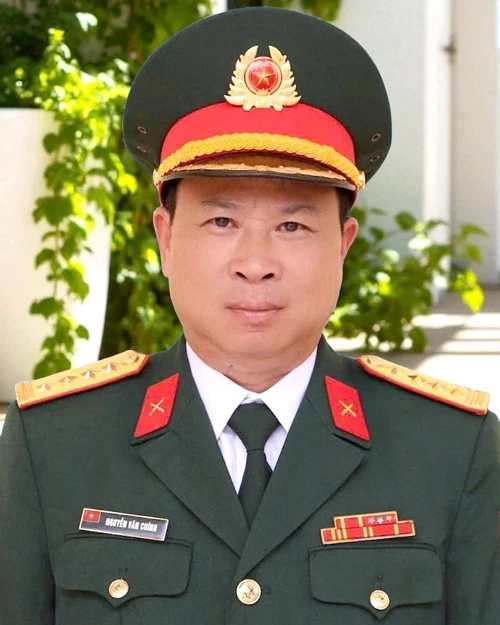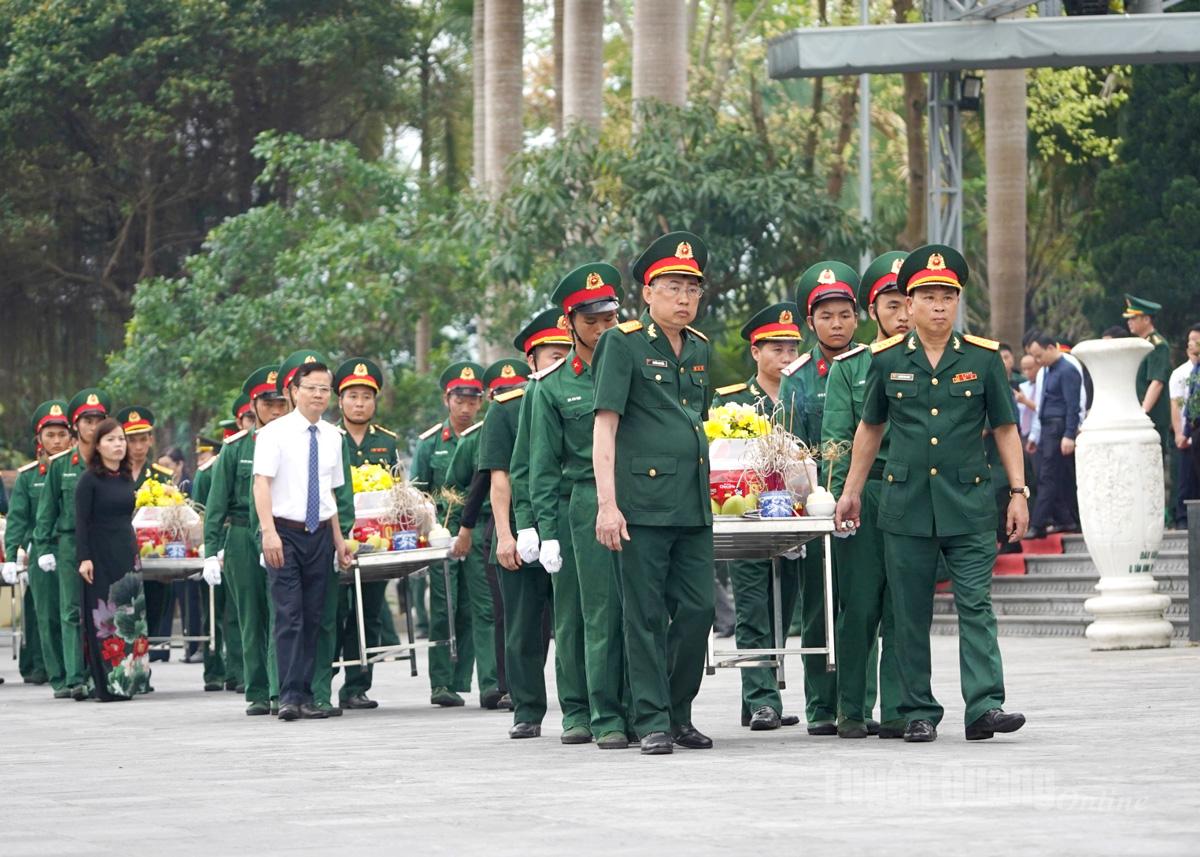Persevering on the journey of gratitude
The search and repatriation of martyrs' remains is a sacred task, bearing profound historical and humanitarian significance, in spite of many challenges along the way. As a key advisor and direct implementer of policy work, Colonel Nguyen Van Chinh, Head of the Policy Department, Military Region II, shares his assessment of Tuyen Quang province's proactive and determined efforts in the journey to bring fallen soldiers to their motherland.
 |
| Colonel Nguyen Van Chinh |
Reporter: As someone who closely follows and supports localities in implementing policies and remembrance activities, how do you assess the outcomes and approaches of Tuyen Quang province in the search and repatriation of martyrs' remains in recent years?
Colonel Nguyen Van Chinh: Since 2018, the Tuyen Quang Provincial Military Command has repatriated 177 sets of martyrs' remains, including 12 identified cases and one collective grave. In the first 6 months of 2025 alone, 23 leads were received and 20 more sets of remains were repatriated, primarily in border communes such as Lao Chai, Thanh Thuy, Tung Vai, and Nghia Thuan, which were key conflict zones during the 1979 - 1989 period.
The search and repatriation of martyrs' remains in Tuyen Quang province has been carried out in a methodical and proactive manner, with flexibility adapted to specific times and locations. The work follows clear plans and involves close coordination with relevant units, local authorities, residents, and veterans.
Currently, 2 key projects are underway: The 1,720-hectare project in Lao Chai, Thanh Thuy has investigated 1,520 hectares and is expected to be completed in the 3rd quarter of 2025; the 1,500-hectare project in Tung Vai, Nghia Thuan has investigated 235 hectares so far, with a target completion date in 2026. The identification of martyrs' remains is carried out using 2 methods: Analysis of personal belongings, headstones, maps, and information from local communities and fellow soldiers; and DNA testing.
Reporter: Based on practical implementation at grassroots level, in your opinion, what are the biggest difficulties and challenges currently affecting the effectiveness of the search and repatriation of martyrs' remains?
Colonel Nguyen Van Chinh: First of all, the northern border defense campaign ended nearly 40 years ago, so information about martyrs' graves is often scattered and imprecise. Most search teams have to rely on veterans' memories, archived documents, and old operational maps. However, many veterans are now elderly, with diminished memory, and some former units no longer exist, making it increasingly difficult to verify information sources.
Secondly, the rugged mountainous terrain, harsh climate, and complex geology with frequent landslides can shift the original locations of martyrs' remains. Many areas, especially in Thanh Thuy and Lao Chai, also contain unexploded ordnance, posing serious risks to search teams.
Thirdly, although the search and repatriation teams are highly skilled, they remain understaffed and have to operate across vast areas, relying mainly on manual methods. The application of modern technologies is limited due to the inaccessible terrain.
Fourthly, DNA testing is one of the key solutions for identifying martyrs. However, the process requires significant time and financial resources, as well as close coordination among specialized agencies, martyrs' relatives, and local authorities.
Despite those challenges, the search teams, with strong determination and responsibility, have remained committed to the task, closely coordinating with bomb and mine clearance units, witnesses, and local residents to gradually identify, investigate, and repatriate remains in a methodical, scientific, and safe manner.
 |
| Burial ceremony for martyrs’ remains at Vi Xuyen National Martyrs’ Cemetery (October 2024). |
Reporter: From your perspective, what priority solutions should be implemented in the coming time to improve the effectiveness of the search and repatriation of martyrs' remains?
Colonel Nguyen Van Chinh: Based on directives from higher authorities, Party committees and local administraions continue to take strong, proactive actions, closely directing and implementing plans tailored to local conditions. Task forces need to uphold a high sense of responsibility, leverage capabilities and experience, and overcome difficulties to fulfill duties.
At the same time, it is essential to continue investing comprehensively in DNA testing equipment, digital mapping, and digital databases of martyrs to facilitate easier access to information. Budget allocations for field investigations and repatriation should be increased, along with ensuring proper policies and benefits for the task forces.
In addition, it is important to strengthen public communication efforts and mobilize information from local residents and veterans, while ensuring information confidentiality and promptly rewarding those who provide accurate information. These sources are significant and can lead to breakthroughs in the journey to identify and bring the martyrs home.
Reporter: In order to race against time, overcome challenges and enhance effectiveness, do you have any recommendations about support policies for the search and repatriation of martyrs' remains, as well as for those who provide information?
Colonel Nguyen Van Chinh: Currently, various policies have been effectively implemented, such as: Government Decree No. 131/2021/ND-CP detailing the implementation of the Ordinance on Preferential Treatment for People with Meritorious Services; Decree No. 75/2021/ND-CP on benefit levels and other preferential regimes; Circular No. 298/2017/TT-BQP by the Ministry of National Defense guiding regimes, policies, and support for organizations and individuals involved in the search and repatriation of martyrs' remains; and Circular No. 80/2022/TT-BQP on the procedures for searching, recovering, and handing over martyrs' remains.
After conducting a preliminary review and practical assessment of those regulations, the Ministry of National Defense is currently gathering feedback to finalize and submit a revised decree to the Government that better aligns with current realities.
As for Military Region II, we will continue to provide close direction to ensure that the search and repatriation teams are thoroughly trained, well-equipped, and maintain the highest level of determination to fulfill this sacred duty.
Reporter: Thank you very much!
Bien Luan





READER COMMENTS